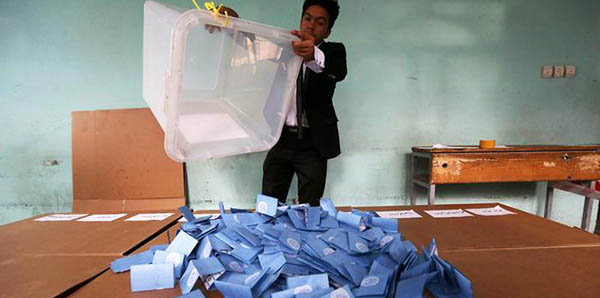The crucial difference between democratic and non-democratic states is the kind of election they hold. In liberal democracies, elections go beyond simple voting. They reflect popular sovereignty - the notion that political power ultimately derives from the people - that public participation is essential in choosing governments and that elections provide a direct link between rulers and the ruled.
The electoral process lies at the heart of democratic government. It provides the institutional means of changing rulers without bloodshed. Elections, if they are competitive, provide the basis of democratic legitimacy. They provide opportunities for voters to participate in choosing leaders, and they confer an obligation on citizens to obey the laws approved by those they select. Citizens, it is believed, may be presumed to consent to laws to the extent that they have participated in choosing their leaders. Free and fair elections make representative government possible.
As we see, democracy does not always involve fair and free election. In our nascent democracy, we experienced large fraudulence which has caused a serious deadlock in our political arena. Considering political situation, we are fluctuating between hope and fair about the result of election, despite our brave and active participation.
A number of features must be present to ensure free and fair elections and the existence of democracy. In democracies, elections must be competitive. Elections ensure that those who seek to direct public affairs defend their records and convince voters that the policies they propose are feasible, desirable and best carried out by them. Their opponents try to show that these same policies are ill conceived and their proponents are unable to manage government, while they themselves are competent. Having some meaningful choice between candidates and parties and policies legitimizes the activities of government.
Elections give the political system legitimacy. They provide those elected with the expectation that their decisions will be obeyed. The electoral process also influences the structure of the party system. It determines which parties will have representation in the legislative assembly and how much representation each will have.
The electoral process helps keep governments accountable because elections can force a change in government. At the very least an election is a retrospective judgment on the incumbent government. Governments know that they will eventually have to face the electorate to defend or justify their performance.
A fair electoral process requires that the size of constituencies be reasonably equal. Democracies are based on the notion of universal adult suffrage. This should not merely imply voting rights but include an acceptance of representation by population or an equality of voting power - what can be somewhat difficult to achieve.
The Parliament is where the heart of democracy beats. Parliaments and parliamentarians embody the culture of democracy in a country. Legitimacy is derived from the freely expressed will of the people through national parliaments, state assemblies and local councils that, in turn, serve the people by holding the executive to account and by ensuring democracy delivers for all.
The usual number of parliamentary seats is between 100 and 300; however it differs from one country to another. Constituents must have reasonable access to their representative and representatives must not have caseloads that are unmanageable.
Parliament should be the primary forum where the voice of the people, especially the poor and marginalized, is heard with absolute clarity.
Confidence among the people that parliament truly understands, and is able to address the needs and interests of the people, is a paramount guarantee of social peace and stability.
Such confidence can only really be secured if parliamentarians can show their effectiveness in leading free and unfettered public debate; in representing the interests and concerns of their constituents; in holding the government to account; and in scrutinizing, improving and enacting legislation.
These are the three essential layers to a healthy democracy: elections; rights of participation; and as a final resort non-violent civil disobedience. Non-violence is an essential democratic value because political violence is undemocratic by nature; it is imposed on people against their will.
Mohandas Gandhi says, “Democracy is an impossible thing until the power is shared by all, but let not democracy degenerate into monocracy.”
The architects of the first democracies of the modern era, post-revolutionary France and the United States, claimed a line of descent from classical Greek – as Abraham Lincoln put it: “Government of the people by the people for the people.” However, at this point it is significant that we keep in mind the differences between the Greeks’ systems of democracy and ours.
There are some major differences between their democracy and ours. First of all, there weren’t as many people as there are now. This made for more participation in civil duties. Another difference is that instead of a representative elected by vote, most officials were selected randomly. The people believed that in this way, there wouldn’t be an unfair advantage if one candidate had more money and power than the other. This made more sense in that the officials and jurymen did not all conform to the same beliefs, making for more diversity and opinions. The last difference is that because these were ancient times, prejudice and slavery were accepted. This meant that only men could join. Adding to this fact, to be eligible, you had to have had credible ancestry: an Athenian mother and father. You were ineligible if you were a foreigner and slaves were excluded all together.

